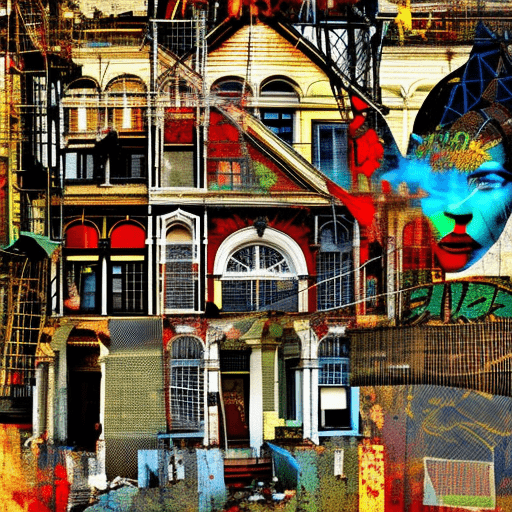Summary:
A Contract with God and Other Tenement Stories is a graphic novel by Will Eisner that explores the lives of various characters living in a tenement building in the Bronx during the early 20th century, delving into themes of faith, morality, and the human condition.
The novel is divided into four interconnected stories, each focusing on different characters and their struggles. In “A Contract with God,” Frimme Hersh, a religious man, questions his faith after the death of his adopted daughter. “The Street Singer” follows the life of a talented musician who faces poverty and despair. “The Super” tells the story of a building superintendent who abuses his power, while “Cookalein” explores the life of a Jewish girl who dreams of escaping the tenements.
Through these stories, Eisner highlights the harsh realities of life in the tenements, including poverty, crime, and discrimination. He also delves into the complexities of human relationships and the moral dilemmas faced by the characters. The graphic novel serves as a reflection on the immigrant experience and the challenges faced by those living in impoverished urban environments.
Themes:
Faith and Morality:
One of the central themes in A Contract with God and Other Tenement Stories is the exploration of faith and morality. Frimme Hersh’s crisis of faith in “A Contract with God” raises questions about the existence of a just and benevolent God in the face of tragedy. The characters in the other stories also grapple with moral dilemmas, such as the street singer who resorts to theft to survive and the superintendent who abuses his power. Eisner prompts readers to consider the ethical choices individuals make and the consequences of those choices.
Poverty and Social Injustice:
The graphic novel vividly portrays the harsh realities of poverty and social injustice in the tenements. Eisner depicts the cramped living conditions, the struggle for basic necessities, and the constant threat of violence and crime. Through the characters’ experiences, he sheds light on the systemic issues that perpetuate poverty and inequality. The stories also touch on themes of racism and discrimination, highlighting the challenges faced by marginalized communities.
Human Relationships and Connections:
A Contract with God and Other Tenement Stories explores the complexities of human relationships in the context of the tenements. Eisner delves into themes of love, loss, and longing, portraying the bonds formed between neighbors, friends, and family members. The characters’ interactions reveal both the beauty and the fragility of these connections, as well as the impact they have on individual lives.
Key Takeaways:
- Faith and morality are complex and often questioned in the face of adversity.
- Poverty and social injustice can have a profound impact on individuals and communities.
- Human relationships and connections play a crucial role in shaping our lives.
“The tenement is a hive of dreams, hopes, and aspirations. It is also a breeding ground for frustration, despair, and anger.”
In A Contract with God and Other Tenement Stories, Will Eisner masterfully captures the struggles and triumphs of individuals living in the tenements of the Bronx. Through his poignant storytelling and evocative illustrations, he explores themes of faith, morality, poverty, and human connection. This graphic novel serves as a powerful reminder of the resilience of the human spirit in the face of adversity.












